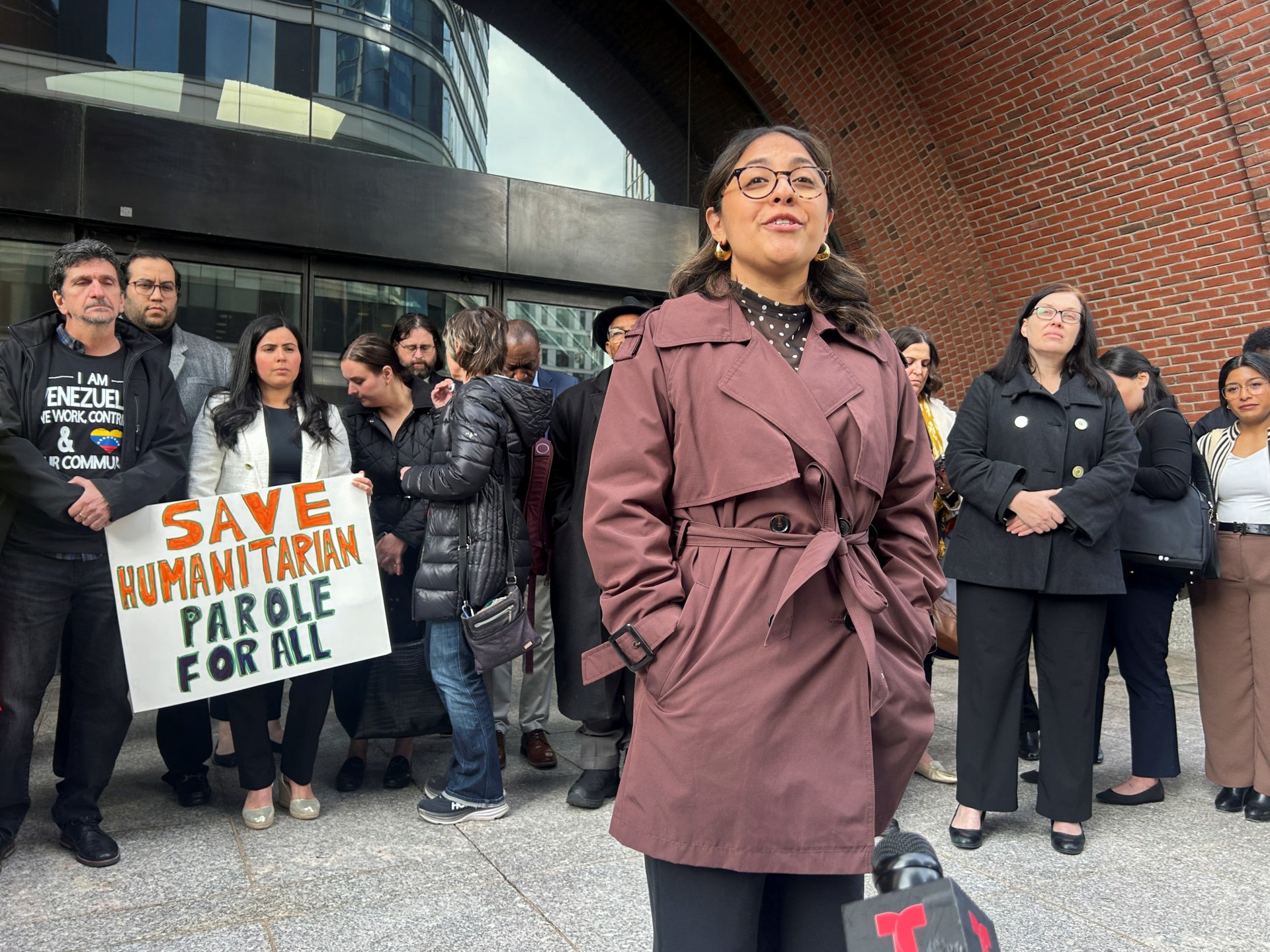The decision on Friday applies to the hundreds of thousands of people who were granted humanitarian bail under former President Joe Biden’s administration.
Due to their immediate humanitarian needs, including instability, violence, and political repression in their home countries, they were granted the right to enter the US.
However, the Supreme Court’s decision raises the possibility of deportation for those who received humanitarian parole before a final decision on whether their immigration status was revoked.
The top court’s decision reverses a lower court’s temporary ban on Venezuelans, Cubans, Haitians, and Nicaraguans from obtaining humanitarian parole after the ruling, which is dominated by conservatives by six to three judges.
The Supreme Court’s decision did not provide a justification. Two liberal justices, however, expressed their disagreements in front of the panel.
The outcome, according to Justice Ketanji Brown Jackson, “undervalues the devastating consequences of allowing the government to precipitously upend the lives and livelihoods of nearly half a million noncitizens while their legal claims are pending.”
She noted that some of the people who were impacted by the court filings had stated in court documents that their humanitarian parole would be revoked.
In an effort to restrict immigration into the US, Trump has targeted programs like humanitarian parole. Trump has claimed that Biden was lax with immigration and that he oversaw the “invasion” of the US from abroad, accusing his administration of “broad abuse” in his appeal for humanitarian parole.
Trump’s administration has also indefinitely suspended asylum applications and other types of immigration relief since taking office in January.
If the defendants were forced to leave the country and were denied entry to other immigration channels, the plaintiffs in Friday’s humanitarian parole case warned the Supreme Court they could face life-threatening conditions.
Lawyers for the plaintiffs claimed that “many will face serious risks of danger, persecution, and even death” if they were deported “to the same despotic and unstable countries from which they fled.”
About 350, 000 Venezuelans living in the US were also given the option of ending Temporary Protected Status (TPS), which the Supreme Court granted earlier in May. TPS permits non-citizens to remain in the country while the conditions there are still unrest or instability.
The Supreme Court’s decision on TPS, like the case from Friday, gave the Trump administration the ability to continue with removals while a Trump policy dispute is being heard in lower courts.
Biden had advocated for humanitarian parole and TPS as alternatives to illegal immigration into the US.
For example, humanitarian parole granted two-year residents of the United States the right to reside and work. That time frame would be shortened by Trump’s attempts to end it.
Nicaragua, Venezuela, Cuba, and Haiti are all examples of serious economic and political crises that have occurred recently in these nations.
For instance, in Venezuela, critics have accused President Nicolas Maduro of detaining and disappearing political activists, and a collapse in the country of causing hyperinflation, which left many Venezuelans without the means to get the basic necessities. In recent years, millions of people have fled the nation.
Since the assassination of President Jovenal Moise in 2021, Haiti, one of the other nations, has experienced a rise in gang violence. Since then, there haven’t been any federal elections, and gangs have used violence to fill the power vacuum.
Source: Aljazeera

Leave a Reply